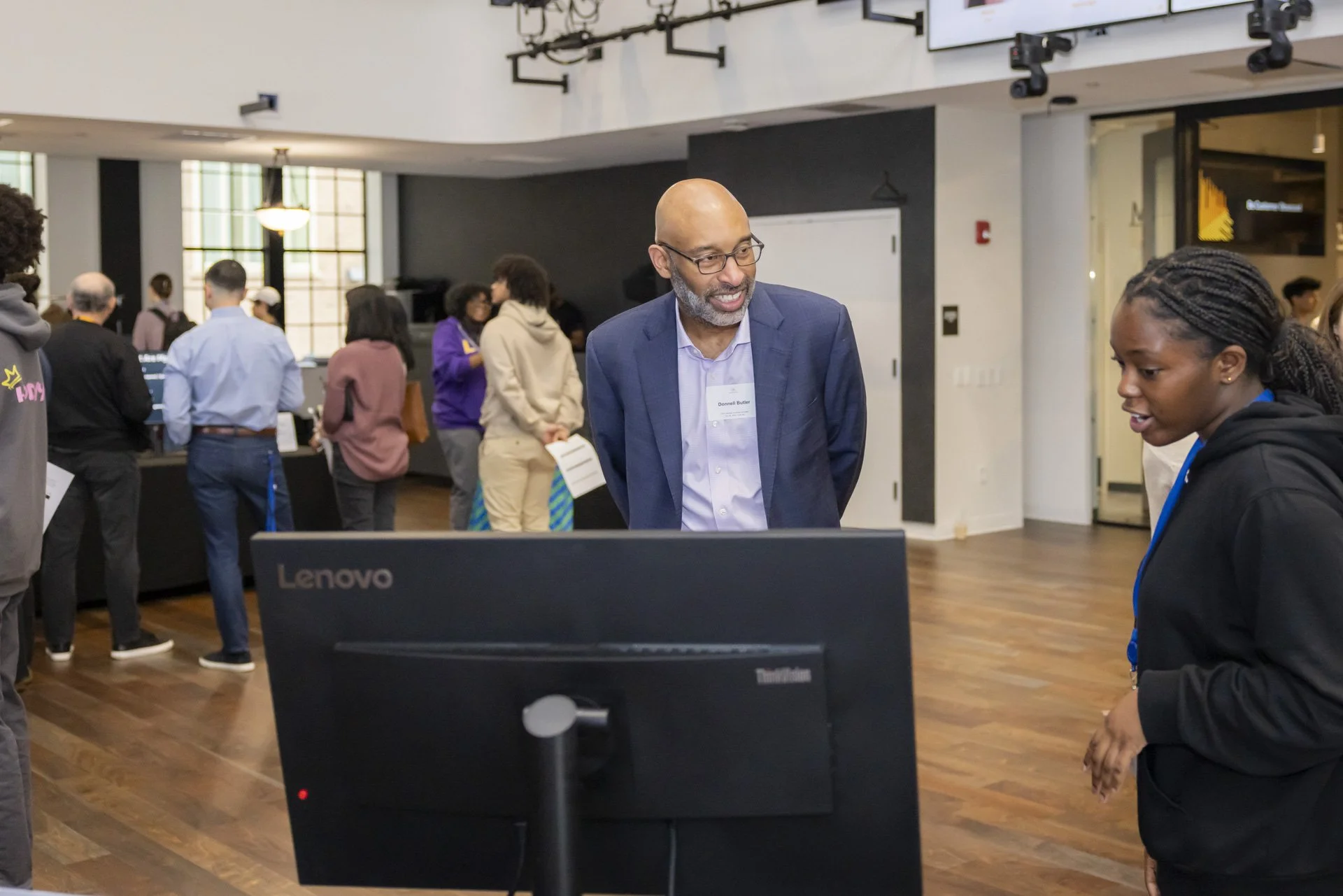Why High School Internships Are Hard—And How to Make Them Work
Dr. Donnell Butler, Founder & President of Prelude
Starting With Honesty
Let me start with a truth that anyone who’s tried to implement high school internships already knows: it’s hard. Not at all impossible, but genuinely difficult in ways that college internship programs aren’t.
And there are good reasons for that difficulty.
High schoolers are developmentally different from college students. They’re navigating school schedules, parental expectations, transportation challenges, and—for lower-income students—the need for paid part-time work.
Meanwhile, companies face real constraints—limited HR bandwidth, individual contributors who’ve never supervised others (let alone teenagers), unclear ROI, and legitimate questions about whether 16- to 18-year-olds can actually contribute meaningful work.
At Prelude, we don’t pretend to eliminate these challenges.
What we do is work alongside our employer partners to make high school internships practicable—identifying where the friction points are and building systems to address them systematically.
The Three Barriers We Hear Most Often
When companies consider high school internships, three concerns come up repeatedly:
First: “We don’t have bandwidth to train teenagers.”
This is real. Your HR team is already stretched thin. Your managers are focused on deliverables, not youth development. The idea of adding high school interns sounds like adding work, not getting work done.
Second: “The administrative burden will be too high.”
Coordinating with schools means navigating different calendars not aligned to business hours, liability concerns, and communication systems. I recall an employer telling me once: “We wanted to do something like this once, but after the third meeting with the school district, we gave up.”
Third: “Will they actually add value, or is this charity?”
Let’s be honest—this is the elephant in the room. Companies want to do good, but they also need to run a business. If high school interns are purely a social responsibility project that draws from limited resources without clear returns, it’s not sustainable.
These aren’t bad objections. They’re justifiable business questions.
How We Address These Barriers—Listening and Finding Solutions
Our model is built on a simple premise: If we want employers to invest in high school talent, we need to listen to them, meet them where they are, and reduce risk at every stage.
On the training question:
We’ve developed a professional skills curriculum that students complete before and during their internships. Before a student meets their manager, they’ve completed our onboarding experience—a crash course in workplace norms. They learn how to present themselves professionally, ask clarifying questions, and communicate absences. They have completed modules on emailing, meetings, time management, and receiving feedback.
That’s not the same as being a college-degreed seasoned employee, but it means managers aren’t starting from zero.
Throughout the year, students attend a weekly seminar where we teach and reinforce workplace competencies—dependability, problem-solving, interpersonal communication. So when a student struggles with something, we’re there to coach them through it in real-time, and managers can focus primarily on mentorship and project work.
On the administrative burden:
Prelude serves as the intermediary. We handle school partnership management—the approvals, the school credit requirements, the scheduling coordination. We facilitate student recruitment and selection. We coordinate between all parties to ensure smooth implementation.
Does this eliminate all the administrative work? No. But it dramatically reduces it. We take what can feel like an impossible lift and make it manageable. Since we started this work, 100% of our partners say that they couldn't have done the internship program without Prelude.
On the value question:
This is where meeting employers where they are becomes critical. We don’t pitch high school internships as charity. We design programs that are valued and sustained by our company partners because they can meet one or more business needs.
Delivering Value: What’s in it for Employers?
When we start conversations with potential partners, we ask: What is the most valuable outcome a high school internship program could deliver for your company?
For some companies, it might be talent pipeline development. You strive to find more entry-level talent locally. High school internships let you identify and build relationships with promising local students (for the college-goers, years before they enter the job market). Some will come back as college interns or full-time hires. All of them will remember you invested in them.
For others, it’s manager development. You have high-performing individual contributors who are eager for leadership experience. High school interns provide that step-up opportunity. In our surveys, 84% of intern managers reported leveraging the experience for their own professional development. They’re developing delegation skills, learning to give feedback, practicing coaching—all in a supported environment.
For others still, it’s employee engagement. Your team wants to mentor and give back. This is skills-based volunteerism aligned to your company priorities. Participating employees consistently tell us this program makes them proud to work at their company.
And yes, for most, it’s community impact and values alignment. You want to demonstrate corporate citizenship in a tangible way. Fifteen local students earning professional skills and $50,000 collectively—that’s a story your employees, customers, and community appreciate.
We don’t dictate which of these matters most. We work with you to identify where the value lies for your organization, and we design the program accordingly.
What “Work-Ready on Day One” Actually Means
Let me be clear about something: Our students are not 25-year-old, masters-degree holding, entry-level employees. They’re 16- to 18-year-olds who are early in their professional journey.
But when a student shows up to their first day, they arrive on time, appropriately dressed, with professional communication norms, eager to learn, and willing to work hard. They know how to introduce themselves. They know to take notes. They know to ask questions when they’re unclear. They understand that showing up and contributing matters.
That foundation—dependability, communication, conscientiousness—is what we establish before students start. Then throughout the program, we continue building from there: problem-solving, critical thinking, interpersonal skills. And yes, they'll make mistakes—they're learning. But we consistently see that clear feedback and consistent support transforms a nervous August intern into a confident May intern presenting their capstone project.
Can they do everything an experienced employee can? No. But can they complete meaningful projects with appropriate scaffolding? Absolutely.
We’ve seen students analyze employee survey data, build productivity tools, coordinate community engagement events, create research-based deliverables, present findings to leadership. Real work proudly supervised by the company’s future people leaders.
From Hard to Possible: Doing the Work That Matters
High school internships are hard. They require intentional design, ongoing support, and realistic expectations. They’re not plug-and-play.
But they’re also practicable—when you have a partner who understands both the employer side and the youth development side, who can bridge those worlds effectively.
What we’ve learned over three years working with nearly 300 students is this: When you reduce friction systematically, provide real support to all stakeholders, and design around student success and business needs—not just social impact narratives—high school internships become sustainable. Our employers expand their programs year over year because the value is tangible.
The question isn’t whether high school internships can work. It’s whether we’re willing to do the hard work of making them work. At Prelude, that’s exactly what we’re committed to—building infrastructure that makes career-connected learning accessible, sustainable, and genuinely valuable for everyone involved.


